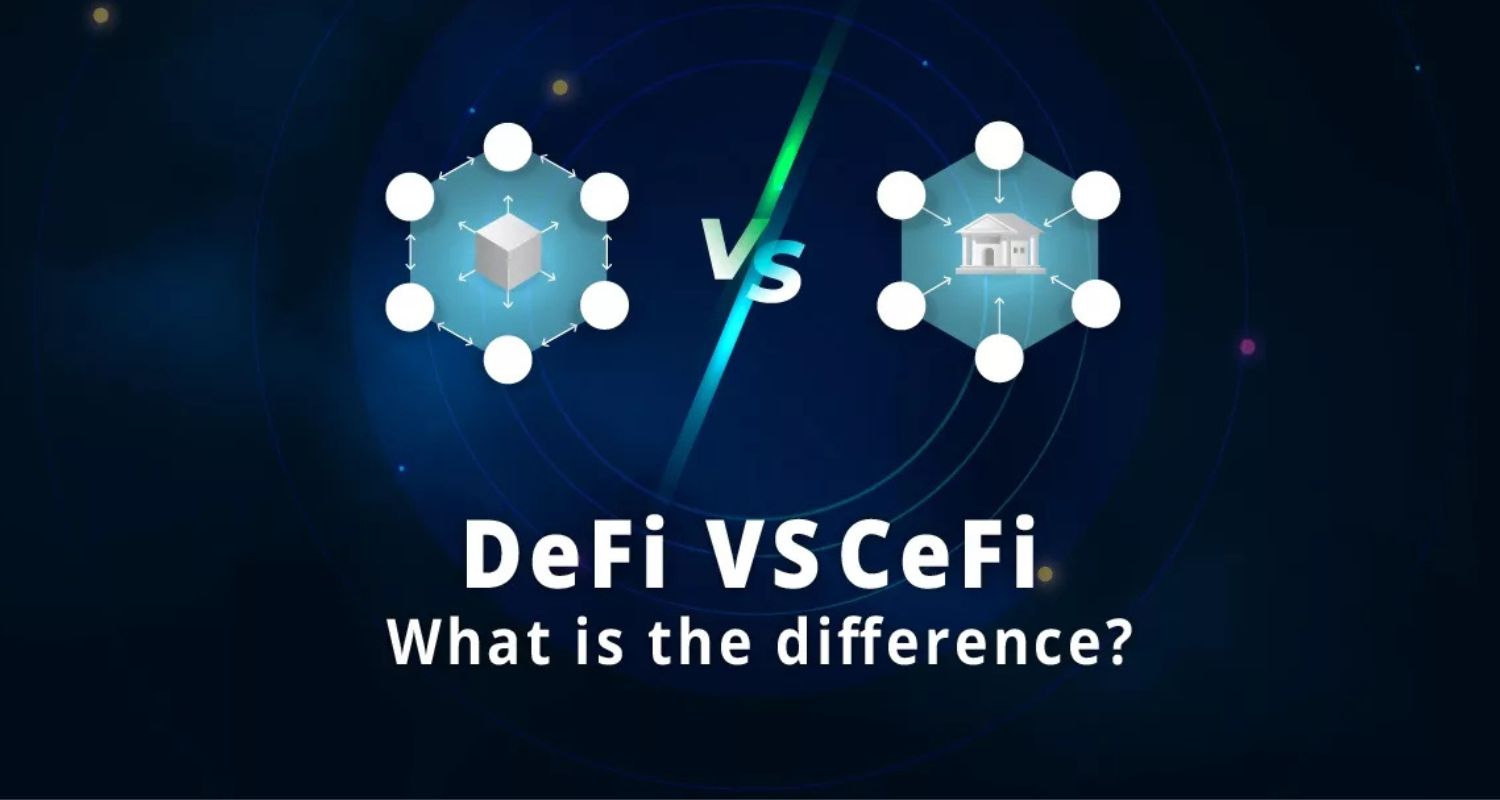DeFi vs CeFi: What’s the Difference and Why It Matters

In today’s evolving crypto landscape, understanding DeFi vs CeFi is essential for both new and experienced investors. These two financial models serve the same purpose but operate differently. DeFi or decentralized finance, gives control to the users through blockchain. CeFi or centralized finance, relies on trusted organizations to manage your assets. This article explains their differences and why it matters for your money.
Table of Contents
- What is DeFi and CeFi?
- Key Differences Between DeFi vs CeFi
- Advantages of DeFi
- Advantages of CeFi
- Risks Involved in DeFi vs CeFi
- Which One Should You Choose?
- Real User Experience
- FAQs
- Conclusion
- How Dextr Can Help
What is DeFi and CeFi?
DeFi vs CeFi represents the debate between decentralized and centralized finance. DeFi (Decentralized Finance) uses blockchain and smart contracts, allowing peer-to-peer financial services without intermediaries. CeFi (Centralized Finance), on the other hand, relies on traditional organizational control and custodianship for crypto transactions and services. While DeFi is open to anyone with internet access, CeFi usually requires verification.
Both models aim to make financial services accessible but differ greatly in control, access and transparency.
Key Differences Between DeFi vs CeFi
Understanding the contrast between DeFi vs CeFi helps in making informed choices. Here are some of the major points of difference:
| Feature | DeFi | CeFi |
| Control | User-controlled | Company-controlled |
| Accessibility | Open to all | Requires registration |
| Transparency | Full via blockchain | Partial or none |
| Custody | Self-custody | Third-party custody |
| Regulation | Minimal | Heavily regulated |
These aspects define how users interact with funds, how safe their assets are and what kind of financial freedom they can expect.
Advantages of DeFi
DeFi is gaining traction due to its freedom and transparency. Here’s why people like it:
- Full ownership of your assets
- No need to trust a third party
- Access to financial tools without approval
- Better returns through yield farming and staking
- Global use without borders or banking systems
"DeFi empowers people by eliminating financial gatekeepers." – Vitalik Buterin, Co-founder of Ethereum
If you want full control and innovation, DeFi is for you.
Advantages of CeFi
While DeFi offers freedom, CeFi gives structure. It works better for those who want guidance and protection. Here’s what CeFi does well:
- Friendly customer support for users
- Easier deposit and withdrawal options
- Clear rules and protection from scams
- Built-in insurance on some platforms
- Simple apps that anyone can use
CeFi is perfect for users who prefer ease and are not ready to handle full control themselves.
Risks Involved in DeFi vs CeFi
Every system has some risk. Whether you go with DeFi vs CeFi, you need to stay alert. Here are the possible risks:
- Smart Contract Bugs: Bad code can lead to lost funds in DeFi.
- Hacks and Scams: Open DeFi platforms can attract criminals.
- Lack of Support: DeFi often has no team to help.
- CeFi Hacks: Central exchanges are big targets.
- Freezing of Funds: In CeFi, your account can be blocked.
By learning and using secure platforms, you can lower these risks.
Which One Should You Choose?
Your choice between DeFi vs CeFi depends on your goals. Consider the following:
- Go with DeFi if you want full freedom, higher returns and control.
- Choose CeFi if you are new and want customer help.
- Combine both to enjoy flexibility and safety.
Many investors mix both options to earn rewards while staying protected. This strategy is called diversification.
Real User Experience
Customer Testimonial
“I started with CeFi on Binance but gradually explored DeFi through MetaMask. While CeFi felt more secure at first, DeFi gave me real control. Now I use both based on my goals and feel more empowered in managing my crypto decisions.”
— Laura B., Dublin, Ireland
FAQs
Q1: Is DeFi safer than CeFi?
Not necessarily. DeFi gives control but has technical risks. CeFi is easier but depends on third parties.
Q2: Can I use both DeFi and CeFi together?
Yes. Many users combine both for flexibility, higher yields and reduced risk.
Q3: Which is better for beginners—DeFi or CeFi?
CeFi is better for beginners. It offers support, apps and help when needed.
Q4: Are DeFi platforms regulated?
Most DeFi platforms are not regulated. This means more freedom but also more personal responsibility.
Q5: Can I earn better yields in DeFi?
Yes. DeFi often provides higher returns, but you need to manage your risk and stay informed.
Q6: Does CeFi require KYC?
Usually yes. Most CeFi platforms ask for identity checks to follow laws and protect users.
Conclusion
The DeFi vs CeFi debate is about what works for your needs. DeFi offers freedom and transparency, while CeFi provides structure and help. Knowing the pros and cons helps you grow your crypto safely and smartly.
At Dextr Apps, we help users understand DeFi vs CeFi through trusted insights, tutorials and comparison tools. Whether you're exploring DeFi tools or starting on a CeFi app, our Web3 app store helps you choose the best and safest path in crypto.


